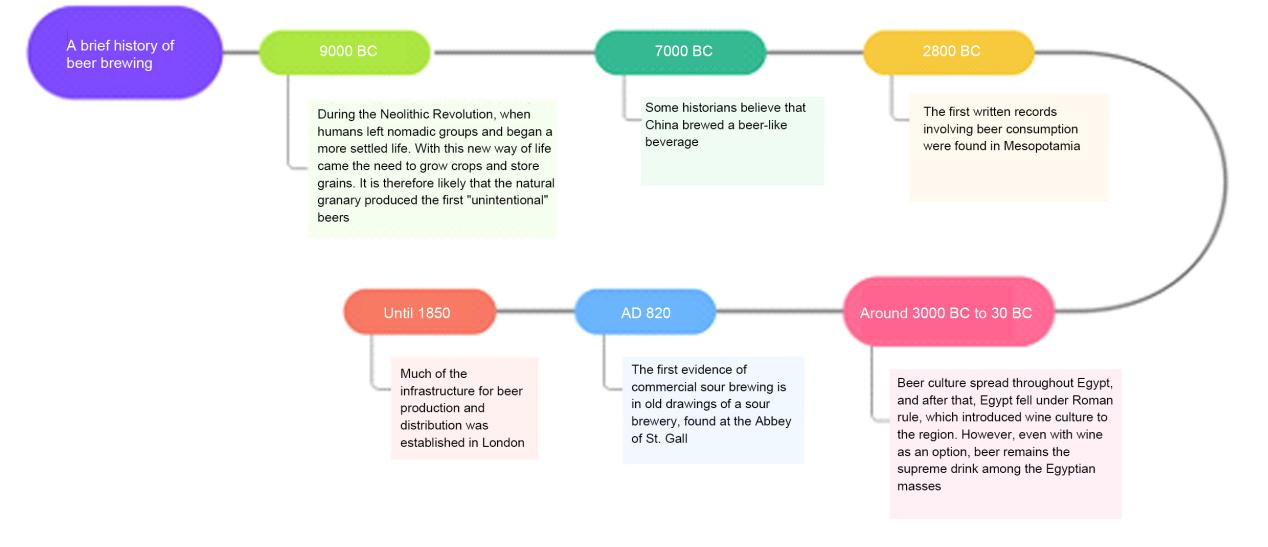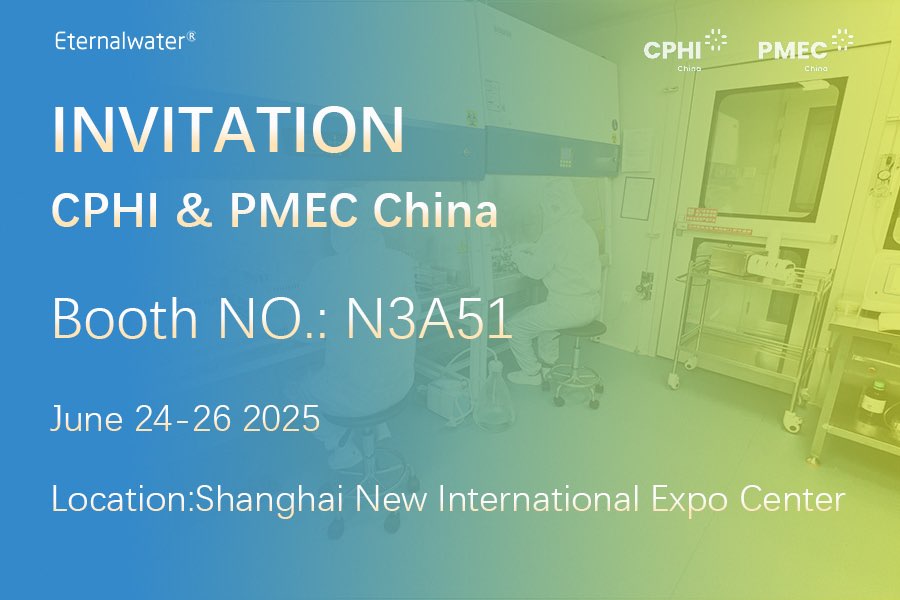
News
Home News Technical articles Microporous membrane pleated filter element in beer filtration industry
Home News Technical articles Microporous membrane pleated filter element in beer filtration industry
Microporous membrane pleated filter element in beer filtration industry
2024-03-13 Eternalwater Beer is the fifth largest beverage in the world, after tea, carbonated drinks, milk and coffee, and has always been one of the most popular beverages. In recent years, membrane separation technology has been widely used in the food industry to replace traditional concentration, separation and clarification technologies. Microfiltration (MF) is the most widely used membrane separation process in the beer industry. Let’s learn about the related applications of microporous filter elements in filtration in the beer industry.A brief history of beer brewing
Beer is closely associated with human society, and this fermented beverage was likely created by accident thousands of years ago. Despite the huge differences in beer brewing techniques between ancient times and today, the traditional version of the brewing process remains completely unchanged. From 9000 AD to today, beer has filled our lives. Let me take you through the history of beer.

Definition and Classification of Beer
The national standards "GB/T 17204-2021 Terminology and Classification of Beverage Alcohol" and "GB4927-2008 Beer" stipulate that beer is brewed by yeast fermentation using malt and water as the main raw materials, adding hops (including hop products) A fermented wine that contains carbon dioxide and can form foam. Note: Includes non-alcoholic beer. According to the national standard "GB4927-2008 Beer", beer is classified into cooked beer, draft beer, fresh beer, and special beer (dry beer, ice beer, low-alcohol beer, non-alcohol beer, wheat beer, cloudy beer, and fruit and vegetable beer).According to the classification of sterilization, it is divided into cooked beer, draft beer and fresh beer.
Cooked beer: pasteurized or instant high-temperature sterilized beer;
Draft beer: Beer that does not undergo pasteurization or instant high-temperature sterilization, but uses other physical methods to sterilize and achieve a certain biological stability;
Fresh beer: Beer that does not undergo pasteurization or instant high-temperature sterilization, and is allowed to contain a certain amount of live yeast in the finished product to achieve a certain biological stability.
According to color classification, it is divided into light beer, strong beer and black beer.
Pale beer: beer with color 2EBC~14EBC;Strong-colored beer: Beer with a color of 15 EBC to 40 EBC;
Black beer: Beer with a color greater than or equal to 41EBC.
Microporous filter element in beer filtration application
Filtration, the process of removing microbial contaminants from selected beverage liquids, is one method of achieving microbiological stabilization of products. Because of the preparation process, beer contains some yeast cells and trace amounts of suspended particles of egg protein and hop resin. Their presence not only affects the appearance of the product (turbidity, etc.), but also affects the biological and non-biological stability (colloidal stability) of the finished wine. stability). Therefore, beer filtration is very necessary.
high flow filter cartridge
Commonly used sterilization methods in the food industry include dry heat sterilization, steam moist heat sterilization, gas sterilization, radiation sterilization, and filtration sterilization. Filtration sterilization is a method that uses the principle that bacteria cannot pass through dense porous filter materials to remove microorganisms in liquids. Sterile filtration has been used as an alternative to pasteurization for many years. Membrane-filtered beer has a pure, refreshing flavor and long-lasting foam, making it more popular among consumers. For manufacturers, since membrane filtration can directly obtain sterile beer, if combined with aseptic packaging, it can also save the pasteurization process and produce finished wine with reliable biological stability, and the finished wine will not be contaminated by the filter medium. Product loss rate is small.
Filtration sterilization method has the following significant advantages in the food industry:
1. Effectively maintain the color, aroma and nutritional content of the product
The filtration and sterilization process is carried out at normal temperature, so it is particularly suitable for heat-sensitive substances, such as beer, milk, fruit drinks, etc.; at the same time, the materials in the filtration and separation process are run in a closed loop, which reduces the impact of oxygen in the air. , and both heat and oxygen have a great impact on food processing; the properties of materials will not change during the migration through the filter membrane; the filtration separation process is a cold sterilization, replacing the traditional pasteurization process that requires heating; therefore The original flavor of the product can be kept as little as possible, thereby effectively maintaining the color, fragrance and nutritional content of the product.
pleated filter cartridge factory
2. The effect of energy saving and green environmental protection is obvious
The filtration sterilization process does not undergo phase changes and has the advantages of cold sterilization. Compared with separation methods that undergo phase changes, it consumes less energy and uses clean energy. The "three industrial wastes" (referring to wastewater, waste gas, Solid waste) is reduced, so the energy saving and green environmental protection effects are obvious.
3. Simplified operating procedures and wide application range
The filtration, sterilization and separation process is relatively simple to operate, easy to realize automatic control, the device occupies a small area, the equipment is easy to maintain, and the device has a long life. Compared with pasteurization, the operation process is simplified. At the same time, the scope of application is very wide.
In the traditional beer preparation process, the filtration applications of microfiltration membrane filter elements are:
1. Raw material filtration: Removing particles from high-viscosity liquids such as syrup, liquid sugar, and additives
2. Respirator: balance tank pressure and prevent pollution
3. Gas sterilization filtration (air, CO2, N2, respirator): compressed air, N2 and CO2 remove moisture and particles in the gas to achieve sterilization level
4. Gas pre-filtration (air, CO2, N2): remove most moisture particles and some bacteria in the gas, and protect the downstream sterilization filter element
5. Trap: intercepts particles falling off from diatomaceous earth and in beer
6. Sterilization pre-filtration: remove impurities such as large particles, protect the life of downstream sterilization filtration, and remove yeast to stabilize beer quality.
7. Sterilization filtration: Completely remove yeast, spores, bacteria and other microorganisms to ensure the long-term storage quality of beer and control the risk of contamination.
8. Steam filtration: remove particles, pipe rust and impurities in steam
Latest News
Read more
- Industry Application
- Life Sciences
- water treatment
- Industrial Filtration
- Food & Beverage
- Microelectronics
- Laboratory
- New energy battery
- Contact Us
- [email protected]
- +86-571-87022016
- +86-571-87293027
- +8613675899519
- Subscribe for Join Us!
- Join us and get detail information,technical parameter and new products etc.
CopyRight © Hangzhou Eternalwater Filtration Equipment Co., Ltd. 2002-2025
- [email protected]
- Jenny wu
- +8613675899519
- +86(571) 87022016

 EN
EN  ES
ES AR
AR JP
JP CN
CN




